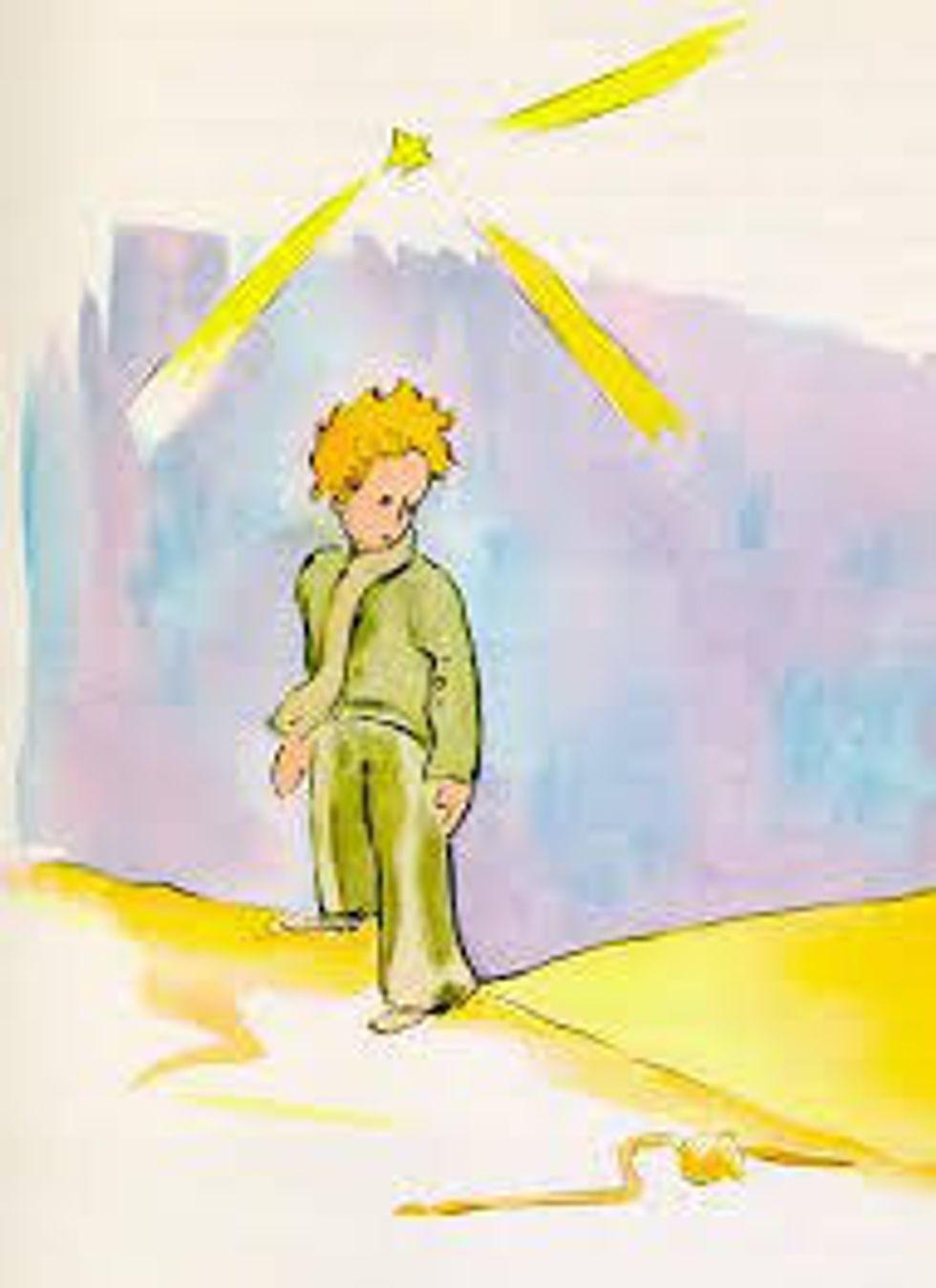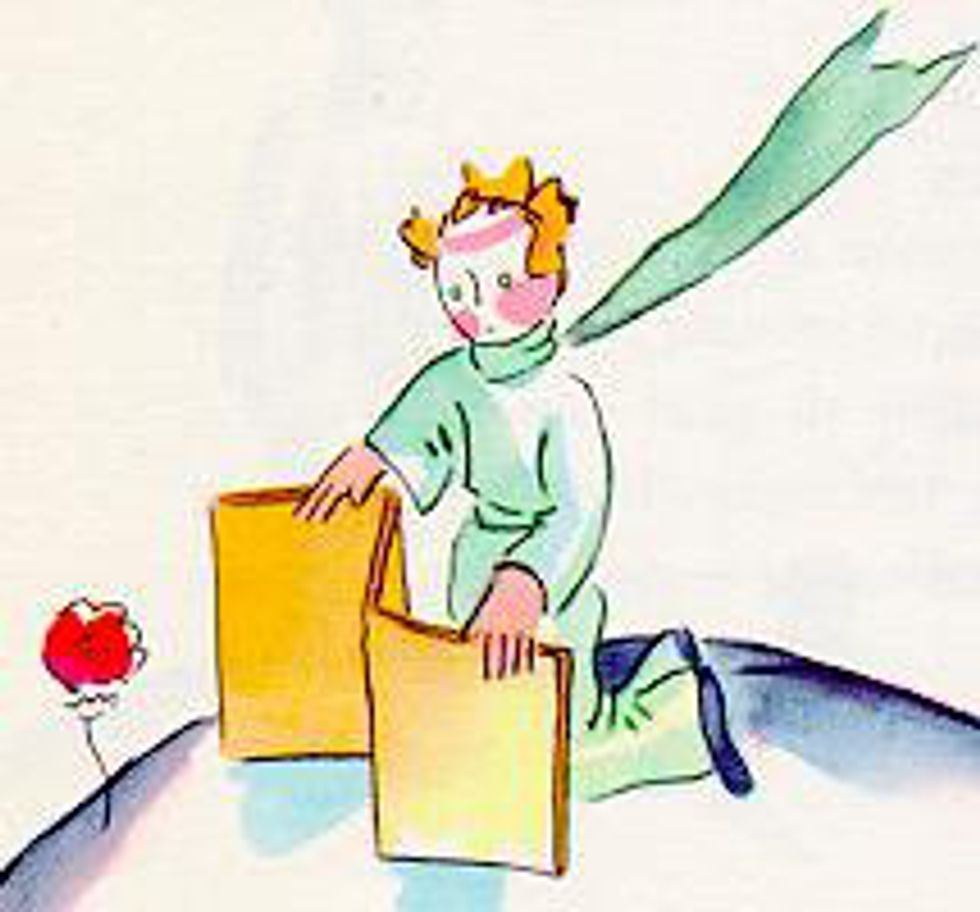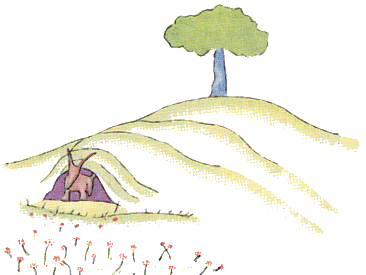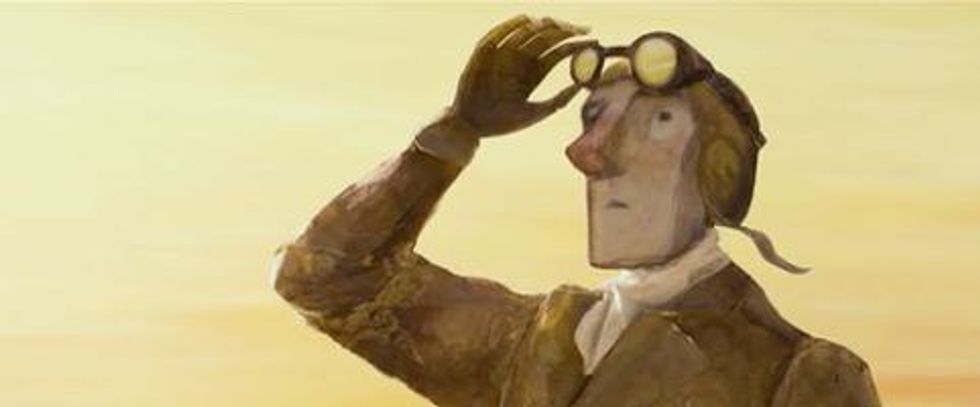This is a continuation from a previous article. You can find the previous one here: https://www.theodysseyonline.com/life-advice-little-prince-one
The Snake
The first living creature that the Little Prince meets on Earth is the Snake. When the Little Prince mentions how lonely the desert is, the Snake replies "On est seul aussi chez les hommes" (One is also lonely among humans). Now I could contribute a whole article by itself onto all the different ways and meanings this quote carries out, but really, I think we all can understand at some point in our lives what the Snake is getting at, and thus leave its interpretation to all of you.
The Flower
The Flower's comment on man is this "Le vent les promène. Ils manquent de racines, ça les gêne beaucoup" (The wind leads them. They're missing roots, that bothers them quite a lot). Missing roots can mean a lot of things. You can think of the roots as your past, your ancestors, your beginnings, and how so much of that information is lost with time. The roots could be a sense of self, knowing who you are because you know where you came from, or you could think of it from a more environmental perspective. Flowers have roots that connect them to the Earth, and that connection is an obvious dependence. Humans are also dependent on the Earth, but since we are not rooted down, we often forget our dependence, and mistreat it. As a result, we now have to deal with the effects of global warming. One thing's for sure though, it's bothering us.
The Rose and the Rose Bush
The Little Prince's main reason for leaving his comet, is that his rose is sick, and since he loves his rose, he will do anything to help her get better. During his travels though, he discovers a garden filled with roses, and finds out that his rose had lied to him. She had said that she was the only rose in this whole universe, but evidently, standing in the garden with roses just as beautiful as she was, she wasn't. It takes him some time to come to terms with this, but after the Fox's lesson, he learns that his rose is unique. That his rose is the most beautiful rose because she is loved by him. That it is love that makes things beautiful, not looks.
The Fox
The first thing that I love about the Fox is the fact that he is a fox. Antoine de Saint-Exupéry could've chosen any other animal to selflessly teach the Little Prince how to love, and yet he chose the one creature that is usually stigmatized as being sly and manipulative.
Once again, as the Snake has previously mentioned, the Fox points out the loneliness of humans. According to the Fox, the only real way to get to know someone is to "tame" them. The Fox defines this taming as a creation of relationships. It's something that takes time, and a lot of effort, both things that humans are too busy for. They buy, not make, things, the things they buy made by strangers, not friends. Friendship and love are two things that cannot be rushed, and yet man, who is constantly busy in order to buy the things that will satisfy his material wants, wants and needs everything in a rush. Man has no friends, because he has no time to truly make them. So the Little Prince goes about befriending the Fox the right way, with plenty of time. This "taming", as the Fox would put it, ultimately leads to success, with the Little Prince being the little boy out of any little boys for the Fox, and the Fox becoming the fox out of any ordinary fox for the Little Prince. It's a signification that makes them special, that makes them unique and loved to one another.
As the Little Prince is leaving, the Fox gives him one last piece of advice: "on ne voit bien qu'avec le coeur. L'essentiel est invisible pour les yeux" (one can only see well with theheart. What's essential is invisible to the eyes). It's easy to meet someone for the first time and call them a friend right away because you clicked on so many different things. It's easy to see the same people every day at work or school, and call them friends because of convenience of setting. But people, like so much in life, are never what they appear to be. There are only things you can find out about another with time and patience, people so rarely open up like a spiral-bound book. All you can ever do is wait.
The Pilot
So what does the Pilot, the narrator of this timeless tale, ultimately teach us? Well, considering the function of a narrator, one could argue that he teaches us every lesson brought up in the story, but if you'd like to get down to the specifics, then what he teaches us the importance of keeping that child within all of us alive. Children are naive, they're innocent, things that are all lost with time as we all grow up and very well should be. But out of that naivety and innocence comes this marvelous simplicity and curiosity. As the pilot points out, adults like using numbers to justify things, and really, how ridiculous is that at times? We tear up our planet, even go to war, because there is x amount of oil in the earth below our feet. Some people will treat one man like he's a star and another like dirt just based off of how much money is sitting in their bank account, and richness is measured in physical, countable things, not invisible, uncountable things like love. But to a child? They're not going to think that way. They're going to see nature in all its beauty and cry when you rip the trees right out of the forest for oil. They're going to look at war, and be terrified of their futures, terrified that they may as well grow up to be ok with such a thing, and that's if they understand it. So many children will not understand it; why it's ok for adults to hurt and kill each other, while they get scolded for hitting their annoying sibling. They aren't going to care how much money someone makes, because they'll treat that person all the same so long as they see their parents doing so too. Yes, they may want their games and toys, but really? What fun are they if they aren't playing with someone they love? If people were to harvest the curiosity and simplicity that they gained as children, then surely the world would be a just little bit better, a little more kind, and maybe, hopefully, a much more thriving place.


























